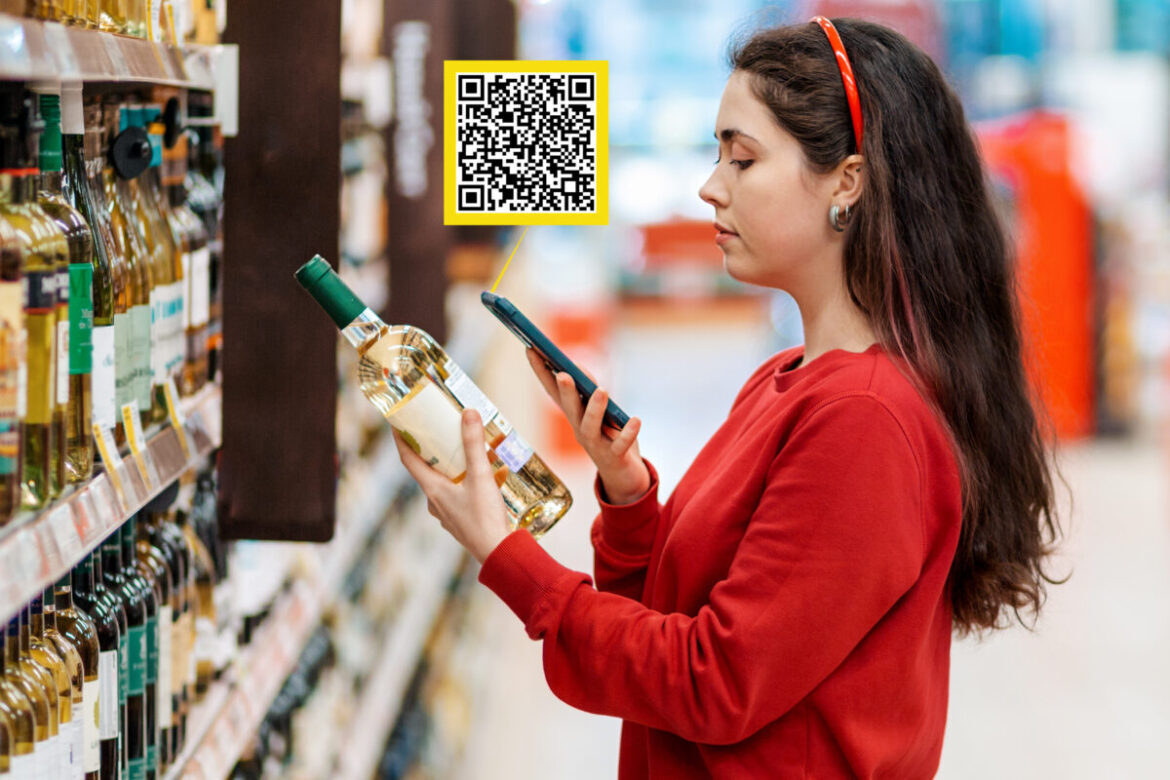The Cardano Foundation, an independent, Swiss-based not-for-profit organisation supporting the Cardano blockchain, released a report titled “Cardano: Slow and Steady Scales the Chain” earlier this year. In partnership with Messari, the report highlights the potential of the Cardano ecosystem and how its commitment to methodical and sustainable development is paying off.
The report outlines the scalability of Cardano. There are now over 2,900 stake pool validators with 71 per cent of all of Cardano’s token (ADA) delegated to them and this number is growing every day. We sat down with Frederik Gregaard, CEO of the Cardano Foundation to learn more about what the company and blockchain tech can do to help ESG and real-life applications.
Can you tell me a bit about yourself and the company?

Before joining the Cardano Foundation, I worked in the fintech and financial sector for many years. At PWC, I was part of building their worldwide Blockchain Practice including support to governments, banks and industrial companies. While at Saxo Bank, I built infrastructure and operating models for banks, asset managers and fintech companies. I also introduced the first multi-asset robo advisor in the Swiss market.
Originally from Denmark, I have cultivated a love of democratising access to capital markets and upgrading the current operating models to serve clients more effectively and provide them with equal access. This has led to the deployment of advanced technology and advisory and collaborative efforts to teach builders and decision makers about the benefits of blockchain technology.
In addition, I have a great interest in education and served as a guest lecturer at ETH Zurich, was a business mentor at Fintech Fusion, and mentored startups in collaboration with the F10 FinTech Incubation and Acceleration Program.
Since October 2020, I have had the privilege of being the CEO of the Cardano Foundation, which exists to ensure the positive advancement of the Cardano protocol. All the while also contributing to the positive advancement of blockchain as a world-changing technology. In everything we do, we enable, empower, facilitate and accelerate progress in the blockchain space. Ultimately, the Foundation exists to facilitate and support a better reality.
The Cardano Foundation has been incredibly active over the past 12 months. We hosted the 2022 Cardano Summit and launched our Second Annual Global Impact challenge with Switzerland for UNHCR. The Cardano ecosystem has grown tremendously and our community is one of the most vibrant and passionate in the sector.
How are cryptocurrencies and blockchain platforms prioritising ESG? And why is this so important?
Our proof-of-stake protocol (PoS), Ouroboros, provides and improves upon the security guarantees of proof-of-work (PoW) at a fraction of the energy cost. PoS solves one of the greatest challenges faced by existing blockchains: energy consumption.
Furthermore, the Foundation’s First Global Impact Challenge was with Veritree, an organisation that provides climate solutions via tree planting. With greenwashing present and transparency lacking, Veritree and the Cardano Foundation partnered to advance forest restoration via blockchain verification that allows for the monitoring, tracing, validation, and permanence of planted trees.
Community members donated ada to plant 1 million trees and each donation was linked to a token recording the ownership and information on the exact location of the tree.
The Foundation is committed to practising what we preach in terms of social values and being a blockchain for good. Cardano provides not only a platform and community for financial and technological innovation, but a social operating system committed to democratising blockchain. It is important to us that this revolutionary technology is not reserved for elites in society, but is inclusive across regions, educational attainment, languages etc.
Cardano is an ardent supporter of robust governance that puts the Cardano community at the heart of what we do. As an example of our democratic governance credentials, a voting app was developed for the Cardano Summit 2022, that enabled our community to vote for speaker categories and for the inaugural Cardano Summit Awards.
The principles of ESG are incredibly important to the Cardano Foundation. The past twelve months have been turbulent and, at times, uncertain in the crypto sphere. It is critical that we maintain our industry at the forefront of implementing sustainable and principled business practices.
What are some of Cardano’s real life use cases?
The Cardano Foundation has led many ‘real-life’ use cases where the Cardano blockchain has been implemented to deliver cutting-edge, efficient, and transparent results.
Ensuring the authenticity of consumer products is just one example of blockchain technology, specifically Cardano’s, being utilised to bolster the reliability and transparency of products we commonly purchase. Last year, a solution was implemented to ensure that customers would be able to verify the quality and authenticity of Georgian wine.
The Cardano Foundation, in collaboration with Georgia’s National Wine Agency, the Bolnisi Winemakers Association, and Scantrust supported individual wineries to verify their wine through the development of a scalable platform that is cost-effective for winemakers. A special label that was produced for each bottle, contained a unique and secure QR code. It allowed consumers to review the authenticity of products and learn about Georgian wine-making history.
Additionally, the National Wine Agency will use the Cardano blockchain to create public, verifiable records from existing wine certification data for wine targeted for export markets.

In addition, a newly formed partnership between the Cardano Foundation and Switzerland for the United Nations High Commissioner for Refugees (UNHCR) represents the potential of blockchain technology; forward-thinking, solutions-driven work achieved when blockchain technology is harnessed successfully.
Switzerland for UNHCR will launch a charity stake pool, with stake delegation by the Cardano Foundation of 3.5 million ada, the native token of the Cardano blockchain. Taurus, a digital-asset infrastructure provider, will run the stake pool. Eighty per cent of the stake pool rewards generated go directly to Switzerland for UNHCR’s operations supporting forcibly displaced people while the remaining 20 per cent will support the organisation’s funds for innovation projects.
How do these compare to other blockchain’s use cases?
Blockchain technology for good has the capacity and capability to bridge the gap between global institutions and individuals. It is a groundbreaking, democratising instrument that can and will restore trust between institutions and people by placing the power to oversee and audit your money, your diploma, your products, and more.
Given the wide range of blockchain applications that can radically improve and innovate traditional sectors, use cases can be found in a whole host of sectors. Of course, applications in the financial sector have dominated blockchain use and have received the most media coverage. However, there are numerous areas where blockchain technology utilisation can be a powerful resource and provide much-needed improvements.
One sector that we have seen that has a particular use of blockchain is supply chain management, as demonstrated through our work with Georgia’s National Wine Agency. Other organisations are taking note of the benefits of blockchain integration with the supply chain. Companies in the retail and supply chain sectors utilise blockchain technology for accuracy in custody, traceability, transparency, complex compliance needs, flexibility, and stakeholder management.
Elsewhere, companies have used blockchain to improve our access to online services and our connection to the internet. This marks a seismic shift from centralised wireless infrastructure towards a true structural decentralisation. It will enable internet hotspots to work together to form a global wireless network that is secure and efficient due to blockchain technology. It is my firm belief that blockchain technology can and will change the world for the better.
What are the important things to consider when looking to scale a cryptocurrency?
Blockchain scalability is mostly a question of trade-offs. In fact, decentralisation and scalability are usually antithetical traits. The more nodes in a distributed system, the harder it is to establish consensus amongst them. Hence one of the main challenges that we face in scaling blockchain-based solutions regards how we can increase the system’s overall throughput without compromising too much of what we value in distributed ledgers: security and decentralisation.
This is why many projects turn to layer two solutions that sit atop of an existing system for scaling. This stems from one simple analogy: you do not buy your bread directly from the central bank. Blockchain protocols are meant to be settlement layers that record major events whereas day to day traffic should happen in side channels with different security and decentralisation trade offs.
Layer twos, however, have their own challenges, mainly with regards to data availability. Scaling a layer one therefore also means providing solutions for layer two protocols to access a more accurate view of the system.
What impact will the Cardano report have on the blockchain and crypto industry?
The recently released Cardano Foundation Annual Report is a clear indication of the huge breadth of impact we are having on the blockchain ecosystem and our plans for the future. It details various 2022 achievements from the different teams across the Foundation, and highlights the Foundation’s overarching mission to facilitate the worldwide advancement of the public digital infrastructure Cardano.
From technical support to spreading knowledge or establishing targeted partnerships and collaborations, the report showcases the Foundation’s work in its three core focus areas of operational resilience, education, and adoption.
The Messari report shines a light on the rapid development of the Cardano blockchain, from an idea in 2015, to one of the largest ecosystems in the industry with billions in market cap and millions of holders.
From an industry perspective, this report demonstrates two main elements. First, how quickly blockchain technology has evolved from a nebulous idea to a revolutionary mechanism that will significantly change industries across the world. If blockchain can develop that quickly in the last decade or so, how will it impact our lives in the next decade? The sector, users, and developers can expect even greater and more efficient development as the industry’s knowledge base grows and more people begin to interact with the technology.
Second, this report demonstrates the durability of blockchain technology. The report shows the constant growth of the Cardano ecosystem, despite difficulties in the broader crypto market. Like any burgeoning industry, activity has been volatile, but with a long-term focus, I thoroughly believe that blockchain technology will deliver solutions to real-life problems.
Final thoughts
I am proud to be at the helm of an organisation that is striving to strengthen financial and social systems. And also working to empower everyday users in our amazing community with the necessary support to leverage our protocol to solve the most pressing world problems.
One of the many things that continues to excite me about Cardano is that the best is yet to come. The Cardano Foundation continues to engage in partnerships that advance not only traditional sectors, such as philanthropy and banking, but that provide users increased resources, accessibility, and transparency.
The Cardano Foundation remains committed to continual improvement in our blockchain and technology, consistently engaging with our Cardano community to both learn from them and to provide tools, education, and support.




